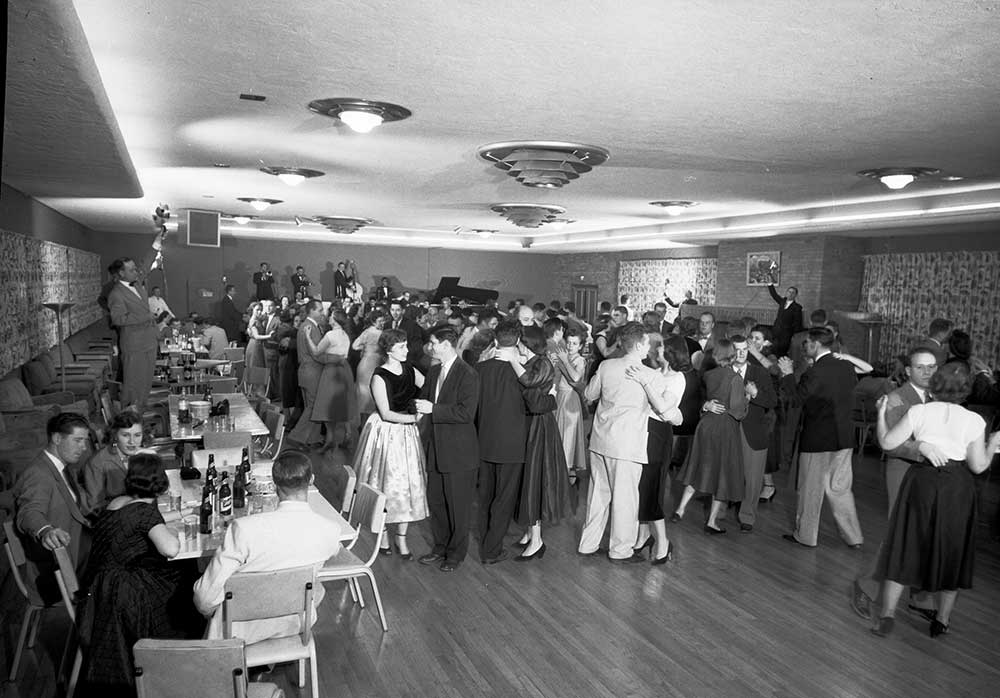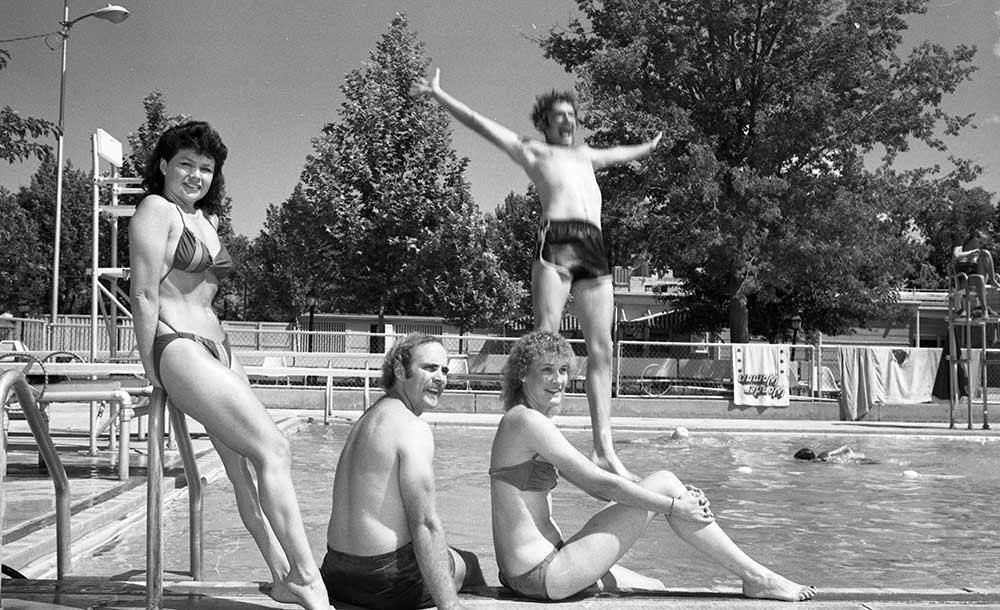Closed since 2004, the club was the place to be for more than 50 years
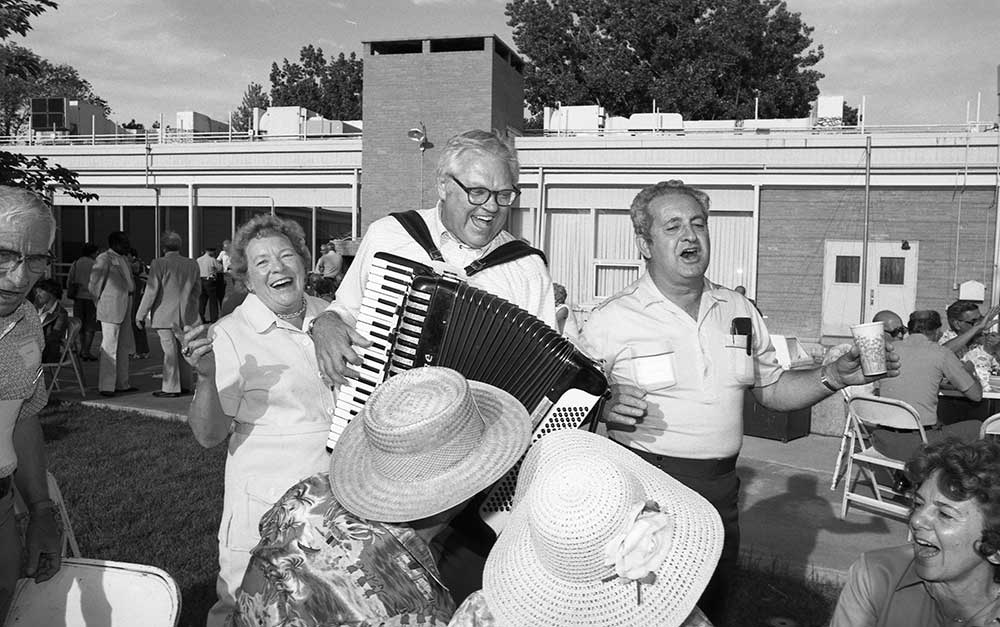
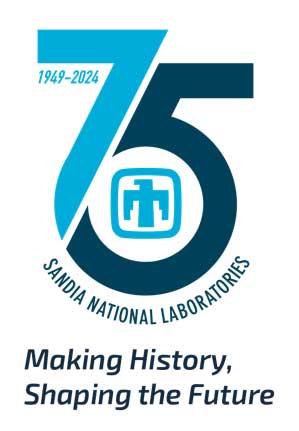
Photos from the Lab News archives.
It was 1993, maybe ’94, and I was going with my Grandma Carmen to play bingo at the Coronado Club.
My grandpa was retired Air Force, and back then, that was enough to get you inside the gates.
I’m 40 now so memory is hazy, but I remember those brightly colored bingo daubers and my grandma’s gold sneakers. I don’t remember if we won, but I remember feeling a rush that maybe we could every time the announcer drew a ball. It was a good day.
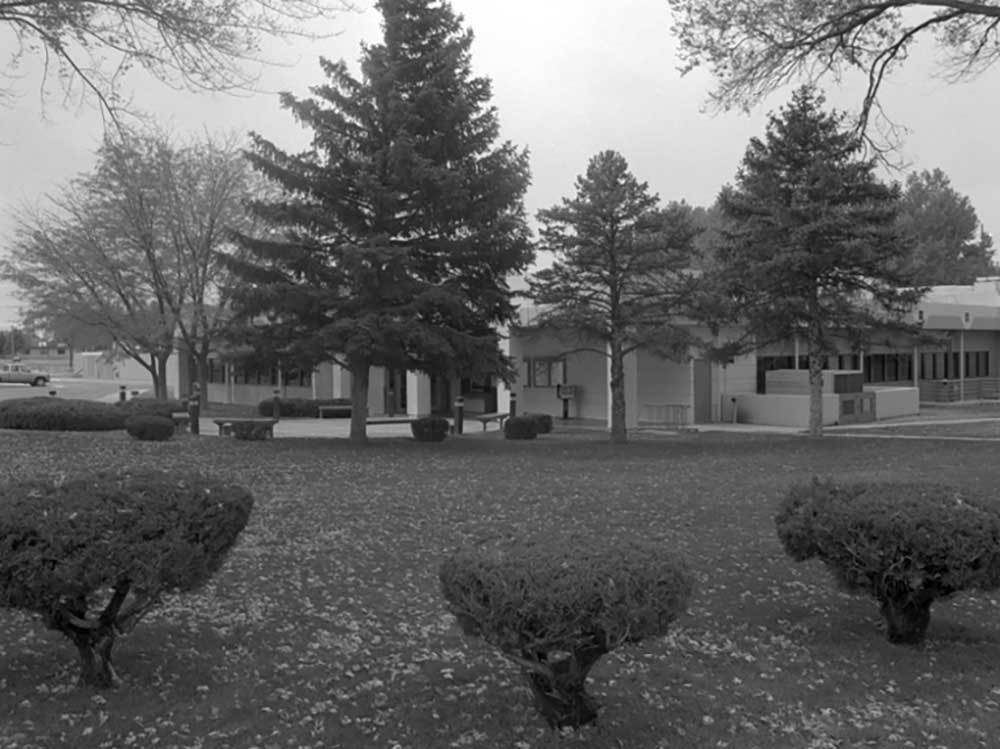
And that’s the thing about the Coronado Club, closed now since 2004: it was home to lots of good days and memories.
Today, what was the Coronado Club is a grassy open space within Kirtland Air Force Base just past the Wyoming gate, but on the club’s opening night back on June 9, 1950, around 2,500 showed up for a night of dinner and dancing. Women wore satin dresses with gloves and heels. Men showed off suits complete with pocket handkerchiefs and wide lapels. Dainty canapes, delicious hors d’oeuvres and what was described in a Sandia Bulletin write-up as “an appetizing variety of tidbits” were served.
Meet me at the Coronado Club
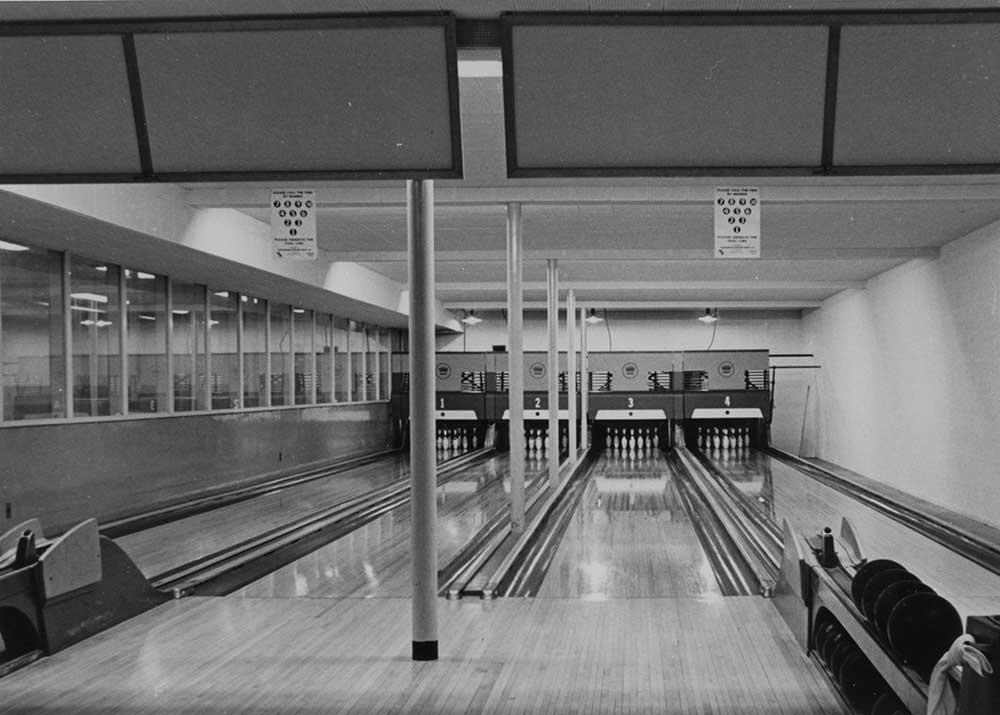
“‘Meet me at the Coronado Club’ will soon be the bywords of Sandia and AEC personnel,” an ad promoting the club wrote in April 1950. At that time, the Sandia site was about six miles from Albuquerque, and with many Sandia and Atomic Energy Commission employees living on base, the club was certainly the place to meet and socialize.
In those early days the club boasted a cocktail lounge and bar, dining area, ballroom, bowling alley, game rooms, swimming pools and tennis courts. Through the years evolving needs led to renovations and additions. In 1956, a second pool was added. In 1965, the bowling alley was removed and, in its place, came additional training rooms. In 1966, the outdoor patio was enlarged, and a patio cover was added. In 1990, the two swimming pools were merged into one and two kiddie pools were added.
The club was home to dances, retiree picnics, pool parties, barbecues, tennis matches, music performances, luncheons, holiday meals, meetings, conferences and bingo nights.
The end of an era
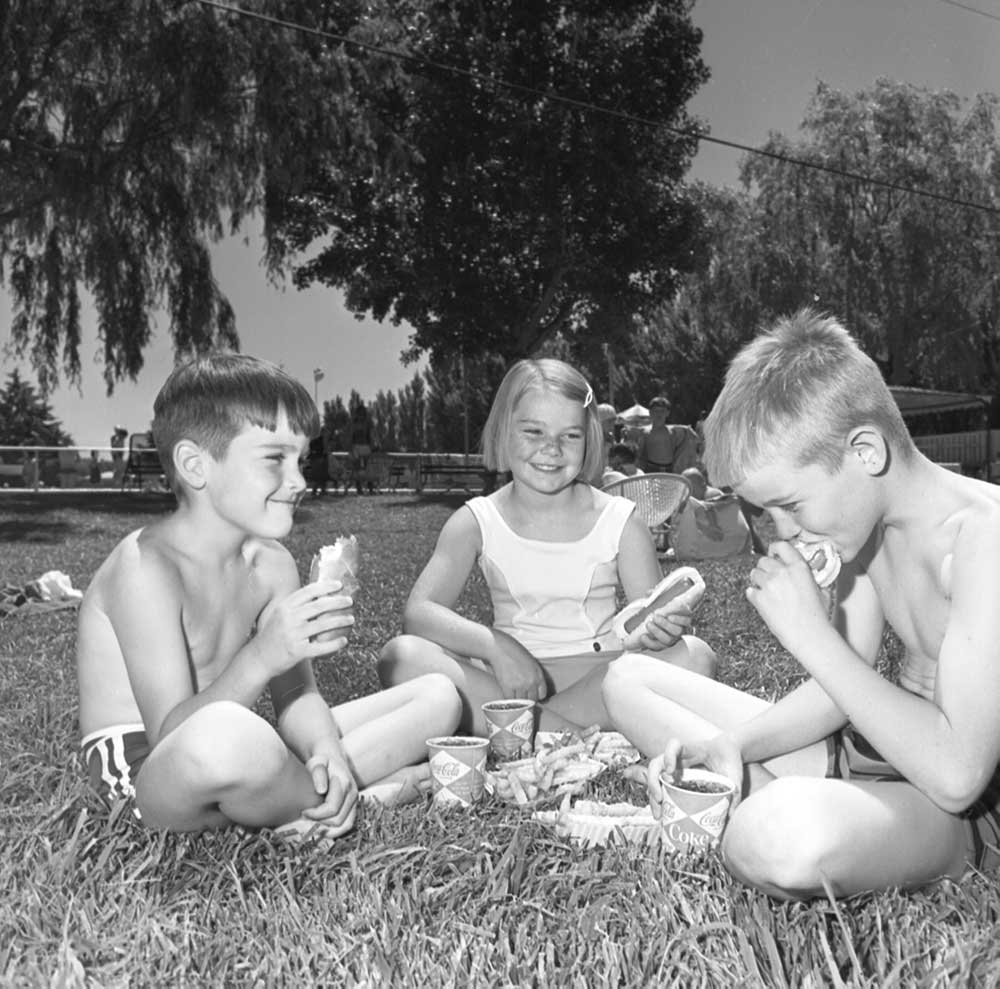
But as the city grew, employees chose to live in the surrounding neighborhoods and took their socializing elsewhere. Membership dipped, and after 9/11, getting through the gates that grandma and I had six years earlier was more difficult, which further discouraged use.
In 2003, the club was more than 50 years old and needed $4.7 million in renovations. Operating costs at that time were $938,000 and out of the 17,000 eligible for membership, the club only had 1,700, down from 3,000 in 1997. A Lab News article from Nov. 13, 2004, titled, “No further investment to be made in 50-year-old Coronado Club facility,” said it all.
On Oct. 1, 2004, the club closed its doors.
In a farewell Lab News tribute, retiree John Weynert reminisced about his retirement party in 1992, where they “ran out of food but had a really good time.” Joe Sorroche said he was going to miss everything at the club: the dances, family dinners, the pool, “you name it, I’m going to miss it.” Former Coronado Club chef Hank Perez tells the story of his first big event in 1980, cooking for nearly 2,000 people with just one stove. But as Hank explains, “Every day at the club was a good day.”
And with that, I think Hank captured the experience of most club-goers, even those who only went once in the early ’90s for a bingo game, the club was where you went to have a good day.
